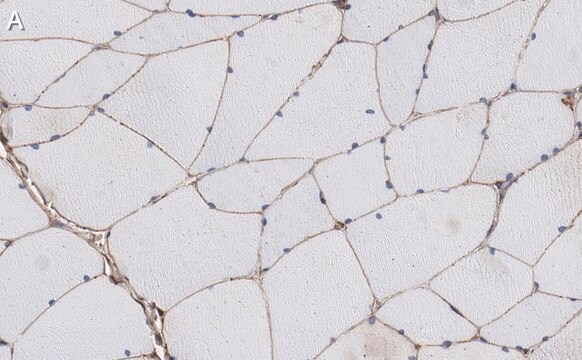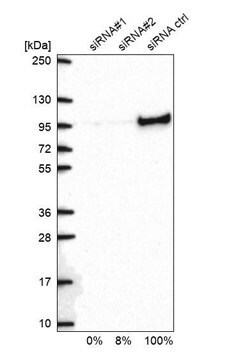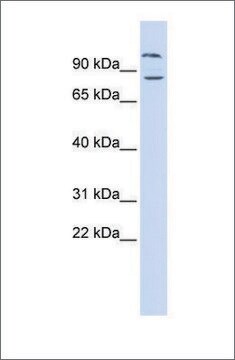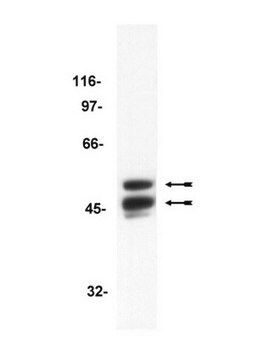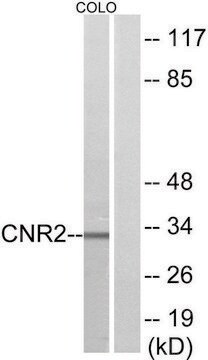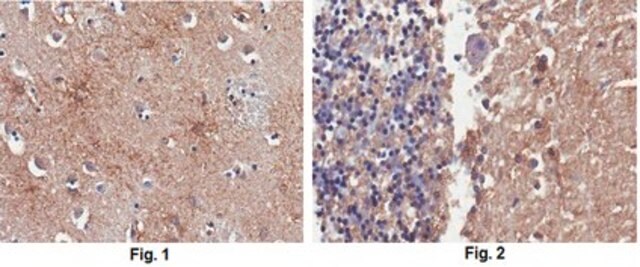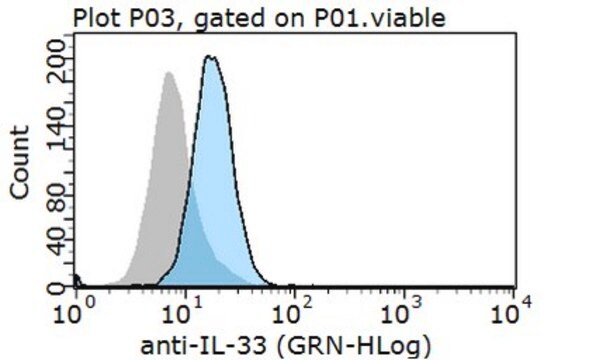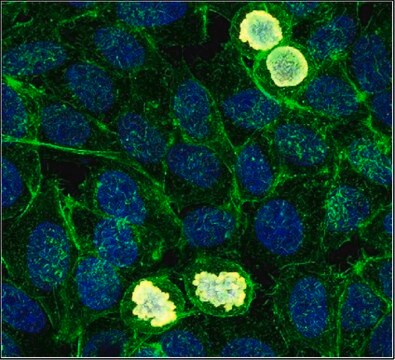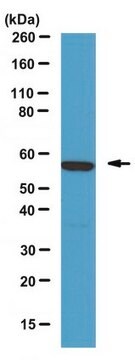ABN1382
Anti-DGL-α Antibody
from rabbit, purified by affinity chromatography
Synonim(y):
Sn1-specific diacylglycerol lipase alpha, DGL-alpha, Neural stem cell-derived dendrite regulator, DGL-α
About This Item
Polecane produkty
pochodzenie biologiczne
rabbit
Poziom jakości
forma przeciwciała
affinity isolated antibody
rodzaj przeciwciała
primary antibodies
klon
polyclonal
oczyszczone przez
affinity chromatography
reaktywność gatunkowa
mouse, human
metody
immunohistochemistry: suitable
western blot: suitable
numer dostępu NCBI
numer dostępu UniProt
Warunki transportu
wet ice
docelowa modyfikacja potranslacyjna
unmodified
informacje o genach
human ... DAGLA(747)
Opis ogólny
Immunogen
Zastosowanie
Immunohistochemistry Analysis: A representative lot detected DGL-α in mouse brain tissue (Berghuis, P., et al. (2007). Science. 316:1212-1216).
Jakość
Western Blotting Analysis: A 1:1,000 dilution of this antibody detected DGL-α in 10 µg of mouse cerebellum tissue lysate.
Opis wartości docelowych
Inne uwagi
Nie możesz znaleźć właściwego produktu?
Wypróbuj nasz Narzędzie selektora produktów.
Kod klasy składowania
12 - Non Combustible Liquids
Klasa zagrożenia wodnego (WGK)
WGK 1
Temperatura zapłonu (°F)
Not applicable
Temperatura zapłonu (°C)
Not applicable
Certyfikaty analizy (CoA)
Poszukaj Certyfikaty analizy (CoA), wpisując numer partii/serii produktów. Numery serii i partii można znaleźć na etykiecie produktu po słowach „seria” lub „partia”.
Masz już ten produkt?
Dokumenty związane z niedawno zakupionymi produktami zostały zamieszczone w Bibliotece dokumentów.
Nasz zespół naukowców ma doświadczenie we wszystkich obszarach badań, w tym w naukach przyrodniczych, materiałoznawstwie, syntezie chemicznej, chromatografii, analityce i wielu innych dziedzinach.
Skontaktuj się z zespołem ds. pomocy technicznej